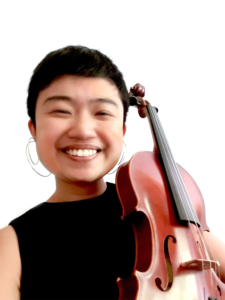Research interests:
Music & rhythm, neurodiversity and autism, stimming and repetitive behavior, alternative and augmentative communication, sensory experiences, video ethnography, ethnomethodology and conversation analysis, design-based research
My work:
My work integrates microanalyses of everyday embodied interaction with the design of interactive environments. Over the course of my career, I have conducted extensive video-based fieldwork on the everyday lives of non-speaking autistic children and adults across a variety of educational, therapeutic, and familial contexts. I study their interactions with people, artifacts, and their environment, as they competently and creatively navigate social life beyond speech.
Informed by this body of work, through design-based research, I develop and empirically evaluate interactive environments that embrace the expressive repertoires of the more vulnerable communicator. Currently, I am developing the “Magical Musical Mat”, a rich environment for improvisation through interpersonal touch and sound.
Chen, R. S. Y. (2022). Improvisations in the embodied interactions of a non-speaking autistic child and his mother: practices for creating intersubjective understanding. Cognitive Linguistics, 33(1), 155-191.
Chen, R. S. Y. (2021). The researcher’s participant roles in ethical data collection of Autistic interaction. Social Interaction. Video-Based Studies of Human Sociality, 4(2). https://doi.org/10.7146/si.v4i2.127298
Chen, R. S. Y. (2021, June). Embodied design for non-speaking Autistic children: the emergence of rhythmical joint action. In M. Roussou, S. Shahid, J. A. Fails, & M. Landoni (Eds.), Interaction Design and Children (pp. 648–651). Association for Computing Machinery. https://doi.org/10.1145/3459990.3463396
Chen, R. S. Y. & Cekaite, A. (2021, June). The transformative role of a stimming object in Autistic interaction. In D. Keifert, K. Gutiérrez, M. H. Goodwin, A. Marin (Chairs), Dignity affirming learning contexts. Symposium conducted at the meeting of the International Conference of the Learning Sciences, Bochum, Germany.
Chen, R. S. Y., Ninh, A., Yu, B., & Abrahamson, D. (2020). Being in touch with the core of social interaction: Embodied design for the nonverbal. In M. Gresalfi & I. S. Horn (Eds.), The Interdisciplinarity of the Learning Sciences, Proceedings of the 14th meeting of the International Society of the Learning Sciences (ICLS 2020) (Vol. 3, pp. 1681–1684). International Society of the Learning Sciences.
—
Streeck, J. & Chen, R. S. Y. (in press) (Invited contribution). On the blindism spectrum: rhythmic attunement among blind children. In B. Due (Eds.), Blind interaction.
Yu, B., & Chen, R. S. Y. (in press). Social communication and language development in diverse learners on the autism spectrum. In P. J. Wolfberg & K. D. Buron (Eds.). Learners on the Autism Spectrum: Preparing highly qualified educators and related practitioners—Instructor manual. Kansas: AAPC Publishing.
Tancredi, S., Chen, R. S. Y., Krause, C., & Siu, Y.–T. (2022). The need for SpEED: Reimagining accessibility through Special Education Embodied Design. In S. L. Macrine & J.M. Fugate (Eds.), Movement matters: How embodied cognition informs teaching and learning. M.I.T. Press.
Tancredi, S., Chen, R. S. Y., Krause, C., Abrahamson, D., & Gomez Paloma, F. (2021). Getting up to SpEED: Special Education Embodied Design for sensorially equitable inclusion. Education Sciences & Society – Open Access, 12(1), 114–136. https://doi.org/10.3280/ess1-2021oa11818
Velautham, L., & Chen, R. S. Y. (2021). Can’t clap to a beat? How rhythmically challenged people experience and strategize keeping time to music. Psychology of Music. https://doi.org/10.1177/03057356211049564
Sterponi, L., & Chen, R. S. Y. (2020). Situating autistic emotionality in interactional, sociocultural, and political contexts. In S. E. Pritzker, J. Fenigsen & J. M. Wilce (Eds.) The routledge handbook of language and emotion (pp. 273-284). Routledge.
Hoey, E. M., DeLiema, D., Chen, R. S. Y., & Flood, V. J. (2018). Imitation in children’s locomotor play. Research on Children and Social Interaction, 2(1).
